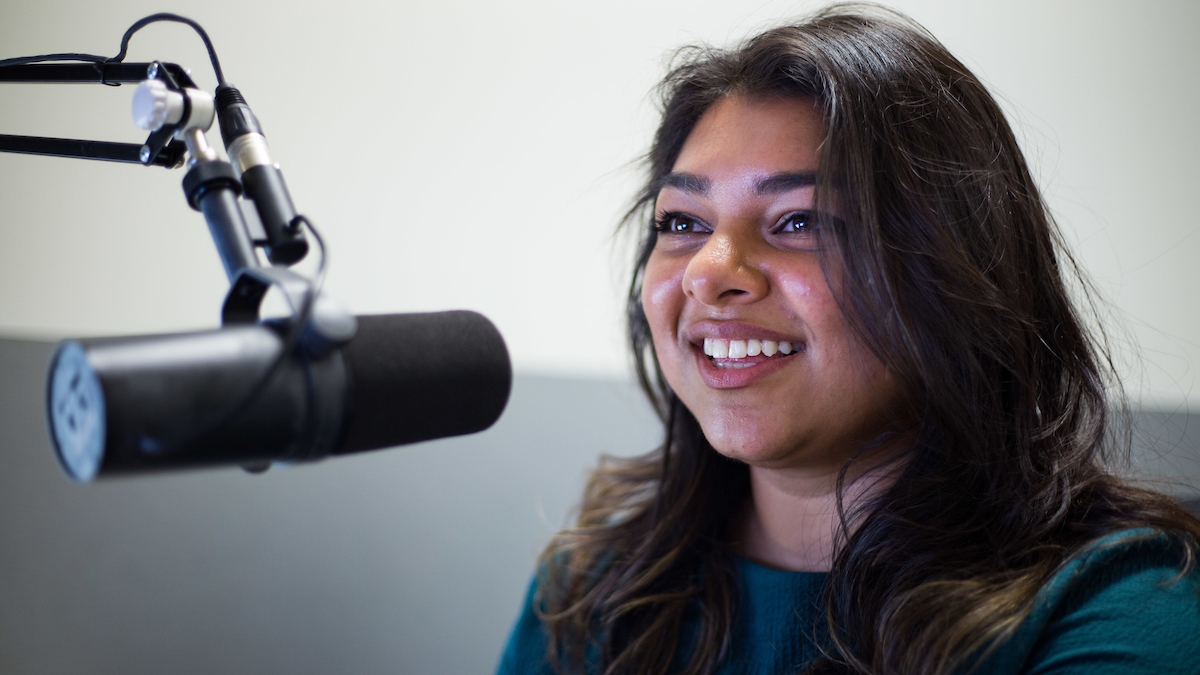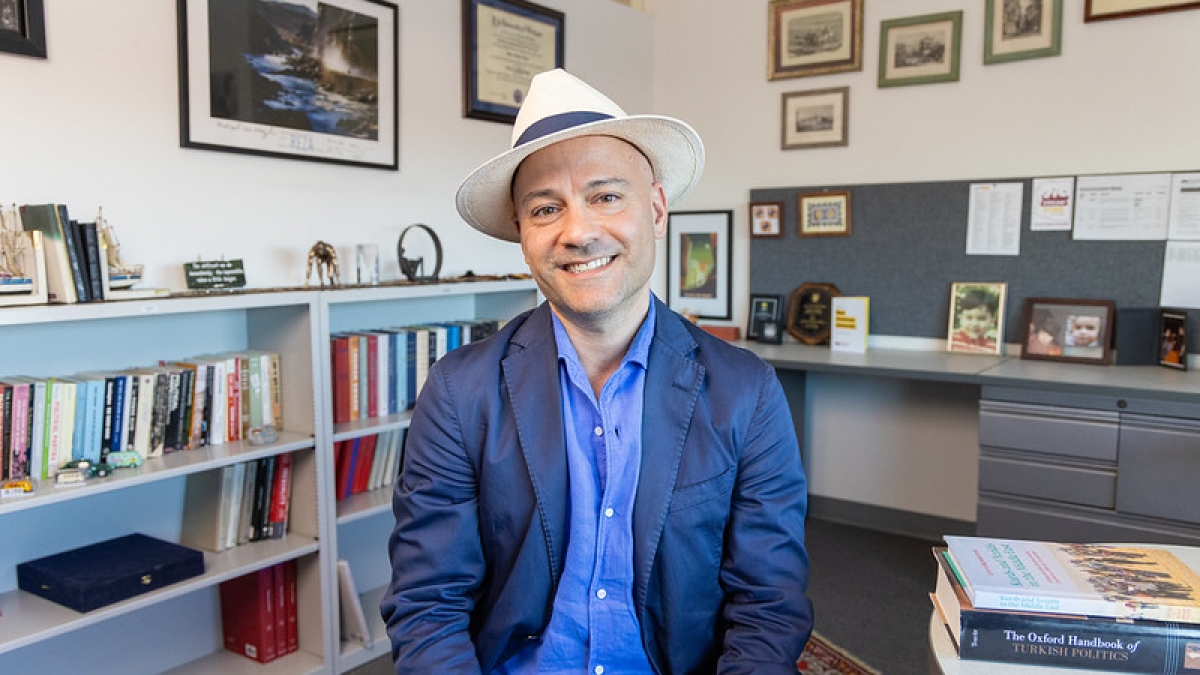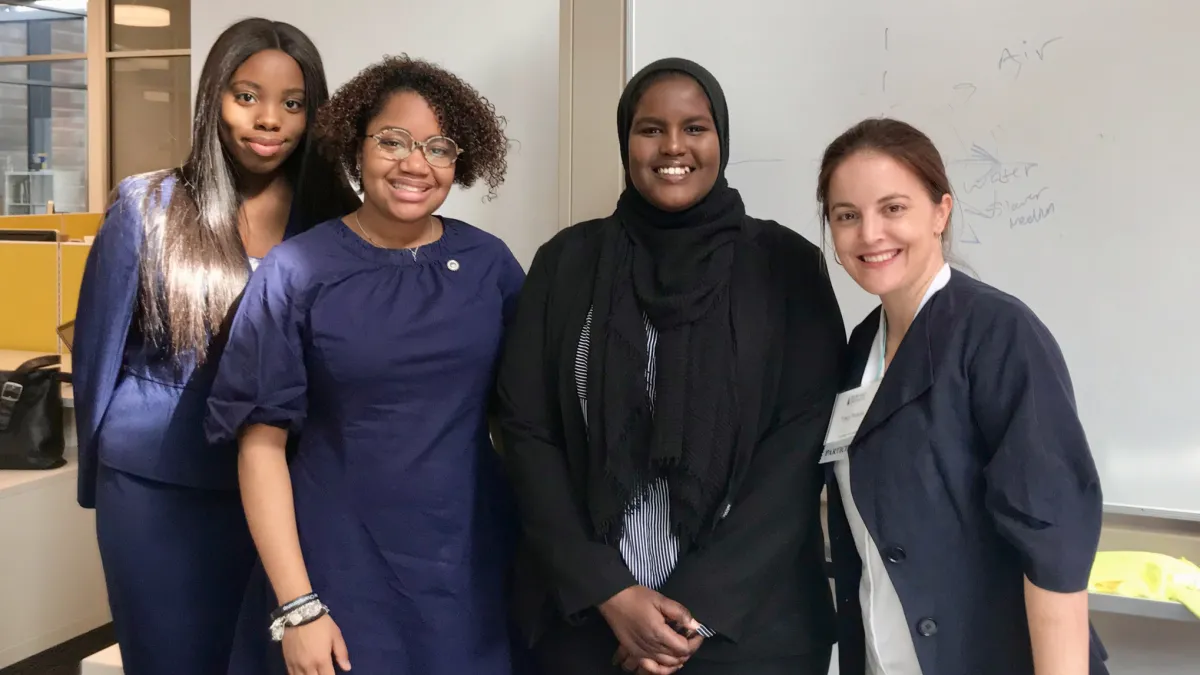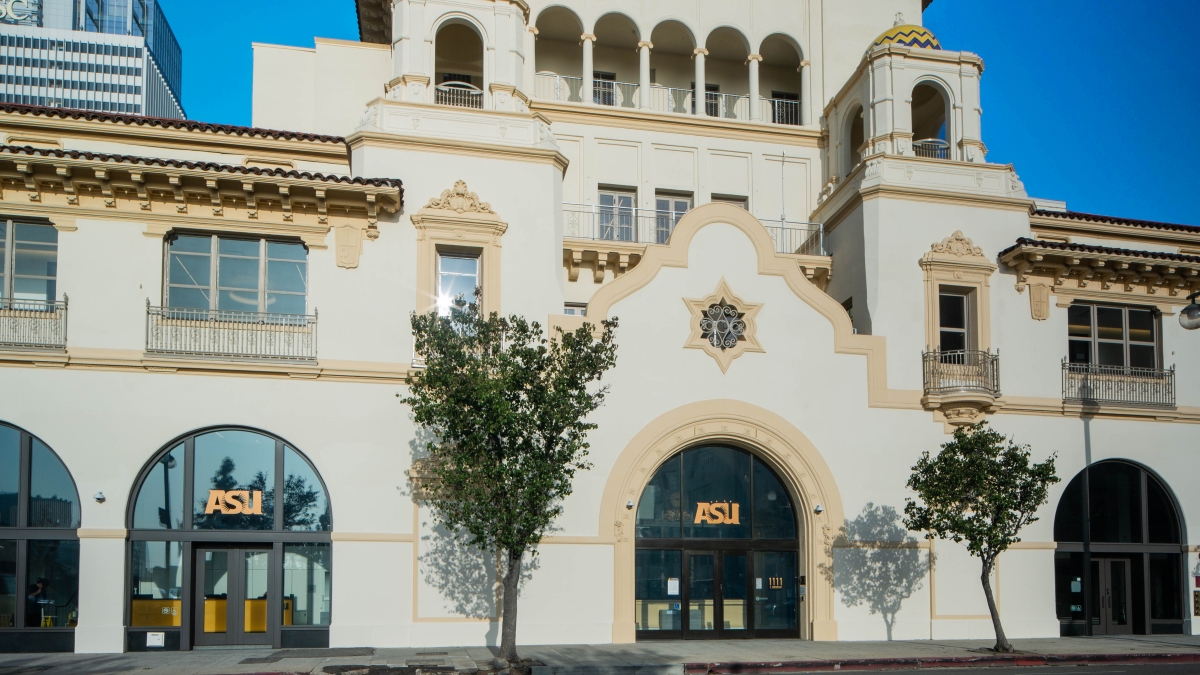Cronkite student enjoys asking questions and seeking answers
Keerthi Vedantam will receive Cronkite Outstanding Undergraduate Award

Editor’s note: This is part of a series of profiles for spring 2018 commencement.
Arizona State University’s Keerthi Vedantam said journalism has shaped her as an individual and offered up a clear career path ever since she joined her high school newspaper.
As a first-generation Indian-American entering 10th grade in Calistoga, California, journalism helped Vedantam to meet new people and get to know them on a deeper level.
“I wasn’t a huge fan of talking to strangers when I first started out, but I eventually overcame that,” Vedantam said. “You just have to ask questions because you need their answers. You learn through experience”
Vedantam, who is graduating this month with a bachelor’s degree from the Walter Cronkite School of Journalism and Mass Communication, spent the last four years asking questions, seeking answers and gaining experience. She is the recipient of this year's Cronkite Outstanding Undergraduate Award.
She mastered many multimedia skills required of journalists, including camera operation, graphic design, creating videos, radio broadcast, social media and even coding. Podcasting, however, remains her favorite medium.
“Audio is a great medium for a lot of people because it doesn’t require anything visual and it’s very passive,” Vedantam said. “You can listen to it while you’re doing homework or while you’re doing the dishes. It’s very easy to consume."
The 21-year-old reported for the Downtown Devil and Cronkite News. She also interned at KTAR 92.3, NBC Nightly News and will spend this summer in Arlington, Virginia, working for Axios while pursuing her master's degree in mass communication.
Question: What was your “aha” moment, when you realized you wanted to study journalism?
Answer: I fell in love with the industry in 10th grade while writing for my school newspaper, the Crown and Shield. No two days were the same, and I collaborated with really talented students who made me a stronger journalist.
Q: What’s something you learned while at ASU?
A: Attending a diverse school in a different state really informed my worldview and my reporting. I had to be resourceful and get comfortable asking a lot of questions, especially when I joined Downtown Devil and reported on downtown Phoenix. It was rewarding; I found a lot of beauty and unique insights in this little part of the world.
Q: Why did you choose ASU?
A: I wanted to be a better researcher and storyteller, and the Cronkite school’s holistic approach to teaching journalism was really beneficial. I learned how to think critically and creatively.
Q: What’s the best piece of advice you’d give to those still in school?
A: Take advantage of classes that are out of your comfort zone — even if you don’t think they pertain to your career track — because they’ll really enhance your perspective. I took classes in coding and graphic design, and those tools influence how I create content today.
Q: What was your favorite spot on campus?
A: Downtown Phoenix has so many collaborative spaces in and around the campus; it’s so hard to pick one. I’m usually at a coffee shop getting work done or hanging out with friends.
Q: What are your plans after graduation?
A: I’ll be reporting in the Washington, D.C., area over the summer and coming back to Cronkite in the fall to finish up my master’s degree in mass communication.
Q: If someone gave you $40 million to solve one problem on our planet, what would you tackle?
A: People around the world don’t have access to independently run media. It’s important that information about local and national communities be accessible, and I would invest in them.
More Law, journalism and politics

School of Politics and Global Studies director's new book explores mass violence
Why do people commit atrocities and why are certain groups, including religious and ethnic, more vulnerable to large-scale violence? These questions are explored in a new book by Güneş Murat Tezcür…

ASU faculty contributing to improvement of Wikipedia
Many academics have a love-hate relationship with Wikipedia. While the website has information about almost anything you can imagine, the credibility of that information is sometimes suspect. Tracy…

ASU Law students gain vital experience through Los Angeles location
Students at the Sandra Day O’Connor College of Law at Arizona State University may be concentrated in the school’s downtown Phoenix headquarters, but they have more choices than ever when it comes to…